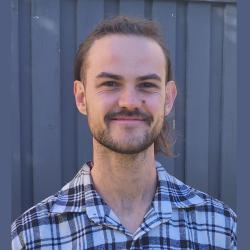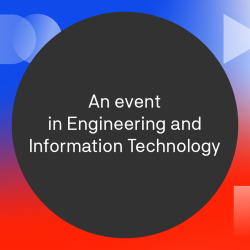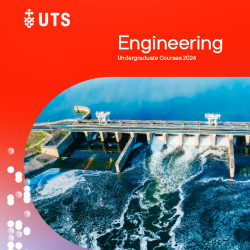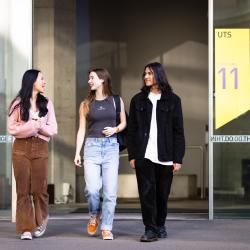I had no idea what I was doing but my lecturer believed in me, and this encouraged me to keep going. I ended up writing a paper on my project which sparked a lot of interest to further the project, and here we are.
The Research

Master of Engineering (Research) student Luke is analysing how brain-computer interface and virtual reality (VR) technology can provide a personalised learning experience that is optimised to enable people to learn more effectively based on their mental state.
“We have this technology now where we can read information from the brain, whether it's from a chip that's implanted in the brain or just the EEG cap (set of electrodes or little pieces of metal that sit on the head to collect brain data), to detect the state that one's brain is in. For example, the technology can assess how stressed an individual is, how engaged they are, or the level of their attention span. Once that has been detected, virtual reality can be used to reinforce learning material in a more personalized way. Hopefully we can have the same learning tasks or skills tailored to suit different unique brains and achieve optimal results based on where individuals are.”
Luke’s research is titled: Investigating brain-computer interface and virtual reality in skill acquisition: an experimental study.
Why brain computer interface and virtual reality?
Luke’s research is aimed at providing a more improved version for studying that can be targeted to different learners, with the most immediate target being learners that are attaining qualifications in fields like, surgeons, pilots or firefighters, who need to simulate real scenarios while practicing to get into their field of expertise.
The learners in dangerous skills field are my first target, then five to ten years down the track, when the technology gets better and possibly cheaper, more efficient and more accepted by the public, it can be adopted in schools especially to help individuals with disabilities.
The journey to UTS research
Luke’s research journey began when he was studying his undergraduate course in music and sound design, when he got to interact with the faculty of Engineering for a project.
“One of my sound engineering units required us to collaborate with game design students. While attending the engineering lectures to establish this collaboration, we learnt about the unity game engine - a program that is used to build video games and experiences, and how it works. We were then asked if we would be keen to make soundtracks for game designers. But at this point, I had been so fascinated by what we were learning that I was interested in not only building a soundtrack but a game as well. After discussing my idea with the lecturer and getting the necessary approval I created a very simple audio-based maze game.”
Luke was also learning how to build a VR experience and his project focused on teaching people how to use a mixing desk. This sparked further interest in VR which prompted him to want to learn the most effective way to use this technology in the future to provide more solutions to different problems.
“Meanwhile, I was also becoming more and more interested in neuroscience, reading a lot about psychology and all that it entails. I was also thinking of furthering my studies while working as a web developer, and one of my old lecturers – William Raffe, recommended doing a Masters by Research as he felt it would be ideal for someone like me. He was right, I’ve been loving my research work so far.”
What the future looks like
“UTS startups are great at providing support to individuals like me with a vision to turn their research work into a product, for example, they will protect a researcher’s intellectual property. It’s a great asset, especially for people like me with zero knowledge about business and how to protect my work. The ecosystems that are created at these startups foster ideas and take them out of academia into industry. So, my vague goal is to use all my learnings and prototypes to create a workable product, especially when I partner with the right people.”
Learn more about UTS Master of Engineering (Research) and UTS Engineering and IT Postgraduate courses.




